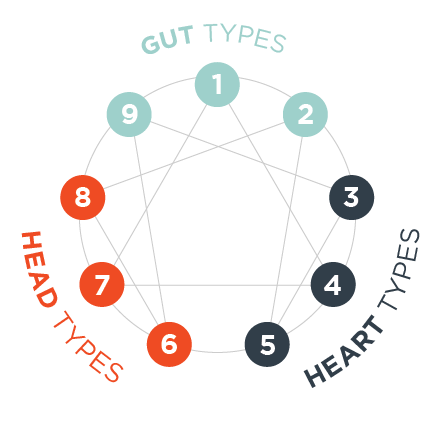Empathy is a subject floating around many conversations these days. Usually, it emerges alongside the words “culture” and “connection,” and “belonging.” But, many of us are left wondering, what’s the difference between sympathy and empathy? Hallmark and good pastors and Grandma raised us as worthy sympathizers. But empathy? How do we do that? Here are a few reasons we believe empathy is crucial to a healthy work environment and what you need to build the skill:
“Empathy is one of the linchpins of cultures built on connection and trust.”
–Brene Brown
Sympathy vs. Empathy
Sympathy is a poor descriptor for what people need when they’re suffering. Sympathy involves understanding another’s pain from your perspective. “I feel bad for you.” Empathy is understanding another’s pain from their perspective. “This is tough. I know you were really hoping for a different outcome.”
Sympathy is feeling for people.
Empathy is feeling with people.
According to Brene Brown, sympathy often drives disconnection while empathy fuels connection. “Bless your heart, I feel sorry for you” is not a response we naturally lean into. In fact, many of us attempt to comfort the sympathizer with responses like, “It’s okay. I’ll be fine. It’s not that bad.” However, an empathetic response such as, “This is so hard. I feel sad with you, and I’ve been there. You are not alone,” pulls us closer. We lean in. We talk more and open up. An empathetic response invites the other person to feel their feelings in a non-judgmental, safe space.
In the workplace, empathy skills are vital when attempting to show co-workers respect. Many leaders and managers desire a healthy work culture, but that desire will never be fulfilled without empathy. For example, when a team member begins attending meetings looking sullen and discouraged, a thoughtful manager using empathy skills might send an email of encouragement or check in at their desk and ask if they want to get a coffee. Empathy skills pull us to treat others like human beings rather than turning a cold shoulder simply because we’re at work. However, the problem in many work environments is that people don’t know each other well enough even to notice if something is off. For this scenario, we have a captivating solution.
A Tool that Helps
Our DesignUs program uses a personality tool called the Enneagram to build up empathy skills, enhance self-awareness, and improve perspective-taking.
The Enneagram is a framework for understanding the multidimensional nature of personality. Our personalities are shaped by the intersection of our innate qualities and the nurturing we receive from our parents, caregivers, family, friends, and other environmental factors physically, socially, and culturally. When used thoughtfully and strategically, the Enneagram helps us understand our co-workers and leaders in a more human way–a giant empathy step! This tool also provides a path toward self-awareness and personal growth. In many ways, the Enneagram helps us become more self-compassionate, affecting how compassionate we are to others. We can’t give anything to others that we can’t give to ourselves.
There are nine personality types on the Enneagram. Those nine types are divided into three categories called the Intelligent Centers. This Enneagram concept helps us identify our most accessible responses or reactions to our environment. This awareness is incredibly useful when in conflict with a co-worker and attempting to implement empathy. Check out the three Intelligent Centers in the diagram below:
The 3 Intelligent Centers
Anxiety and distress for the head center
Those who think their way through life and process events in the mind. These types tend to experience anxiety about future outcomes and retreat to problem-solving in their head.
-Highly developed mental faculties
-Search for solutions
-Constant alert
-Everything in life is experienced as a threat or assault on the inner state
-Seek to master their environment
-Objectivity
-Always taking a step back to reflect
-May ask themselves questions like, “Where am I?” “How does this all fit together?” “Am I dependent?” “Am I independent?”
-Outwardly, clear and clever
-Inwardly confused and isolated
-Take a step back to think and process
-Move away from others
Fear or shame for the heart center
Those in the heart center feel their way through life and attach feelings to thoughts. These individuals are motivated by their emotions and tend to experience great fear of rejection.
-Social warmth
-Oscillate between connection and comparison
-Trying to validate self-worth
-Project fears through quiet attempts to have needs met
-Long to secure the devotion of others
-Experience themselves through the feelings of others
-Concerned with being there for others
-Have a more challenging time being alone
-In a new situation, they may ask, “Will you like me?” or, “Who am I with?”
-Life is a task to be mastered
-Often concerned (sometimes unconsciously) with prestige and image
-Move toward others
-Outwardly self-confident, happy
-Care about how things feel
-Can be passionate
-Inwardly incapable, ashamed
Frustration or anger for the body center
Those who are highly intuitive and rely on instinctual reactions to deal with life. To these individuals, life feels like an impact they have to brace for.
-Intuition and instincts
-Life is a battleground
-Become the solution to the problem
-Activity helps them assert a sense of control
-Irritated
-Life is a little too much
-Doers
-Impassioned
-In a new situation, they may say, “Here I am, deal with me.” or, “How come I’m here?”
-Concerned with power and justice
-Have to know who is in charge
-Direct
-Live in the present
-Outwardly, “doing just fine”
-Inwardly, tormented by moral self-doubts, angry
Everyone has a different lens through which we see the world. That lens affects how we experience life, react to situations, and what we need. Being aware of the different motivations behind behavior can provide comforting and fascinating insights into the best solutions for reconciliation.
The information above is just the tip of the iceberg. In our DesignUs training sessions, we dive deeper into the Enneagram and how it can help us give and receive feedback with respect, clarity, kindness, and generosity. There are many ways to leverage this tool and develop self-awareness. Our DesignUs program provides important language for understanding how we interact interpersonally, work through conflict, and hold expectations in relationships. Put to work compassionately, the Enneagram allows for beautiful personal development and the transformation of work environments.
A more empathetic us can be designed…
To get started with DesignUs, visit https://dimalantadesigngroup.com/our-solutions/designus-a-culture-project/

